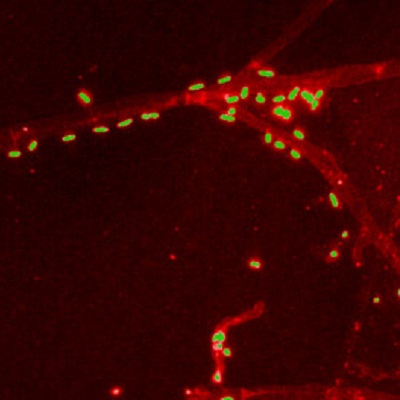Novel imaging approaches to track rhizosphere carbon flow

Rhizosphere microbes are key players in the carbon transformations underlying the generation and sustenance of soil organic matter. Recent evidence suggests that the production of stable soil organic matter compounds may be related to microbial recycling of cellular products. Additionally new research reveals that changes in the abundances of specific microbial taxa following fresh nutrient inputs may play a role in the degradation of native soil organic matter.
To date much of the research in this area is based on correlation, and new technologies are required to mechanistically understand the flows of carbon from plant and soil pools through specific microbial communities. Alongside the development of PLFA and nucleotide based stable isotope approaches to link microbial diversity and carbon flow, novel image based Raman microspectroscopy of soil biofilms offers an as yet unexplored methodology to deliver new understanding in this area.
This method offers the potential to simultaneously assess cellular identity (rRNA FISH probing), location, and function (Laser based quantification of cellular turnover of different 13C labelled compounds) and offers an exciting platform to simultaneously assess localised diversity and function in the rhizosphere.
Research and training will be designed to answer the question? How does microdiversity in soil structure and microbiology influence rhizosphere carbon flows?
In this PhD project the student will be innovating new approaches to understand rhizosphere carbon cycling using ‘state-of-the-art’ technologies on soils from gradients, long-term experiments and microcosm manipulations. Training will be provided through research and as part of the Envision programme as well as by the NERC CEH and Lancaster University.
Applicants should hold a minimum of a UK Honours Degree at 2:1 level or equivalent in a relevant subject.
For further details please contact Doctor Daniel Read dasr@ceh.ac.uk
